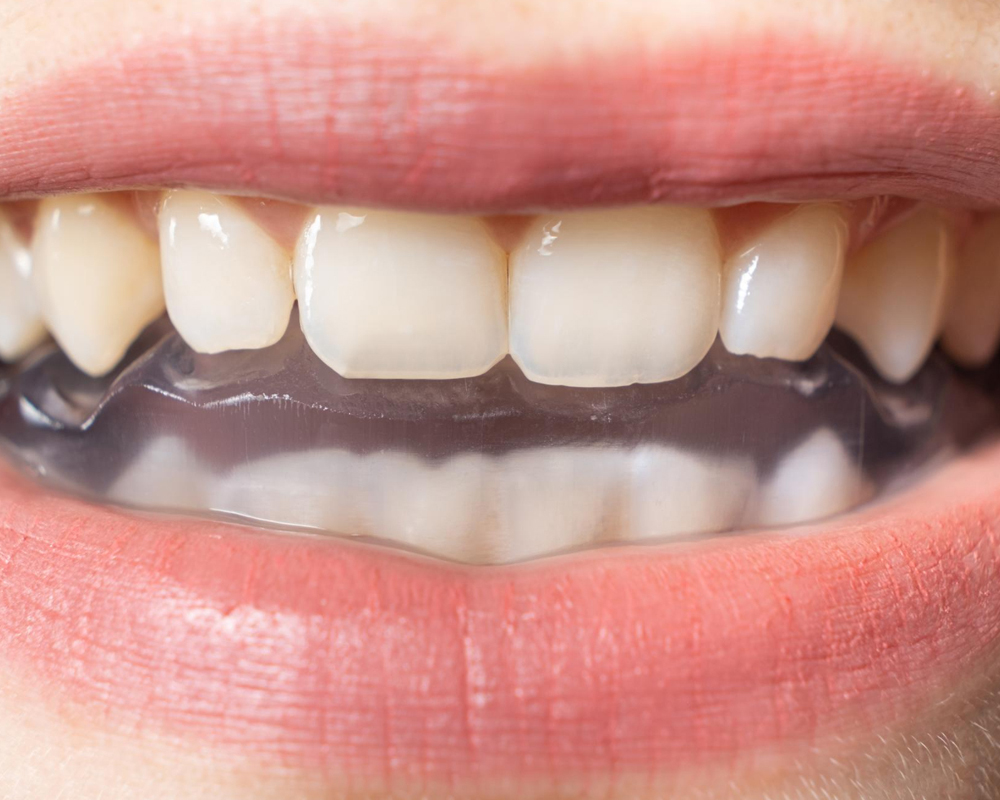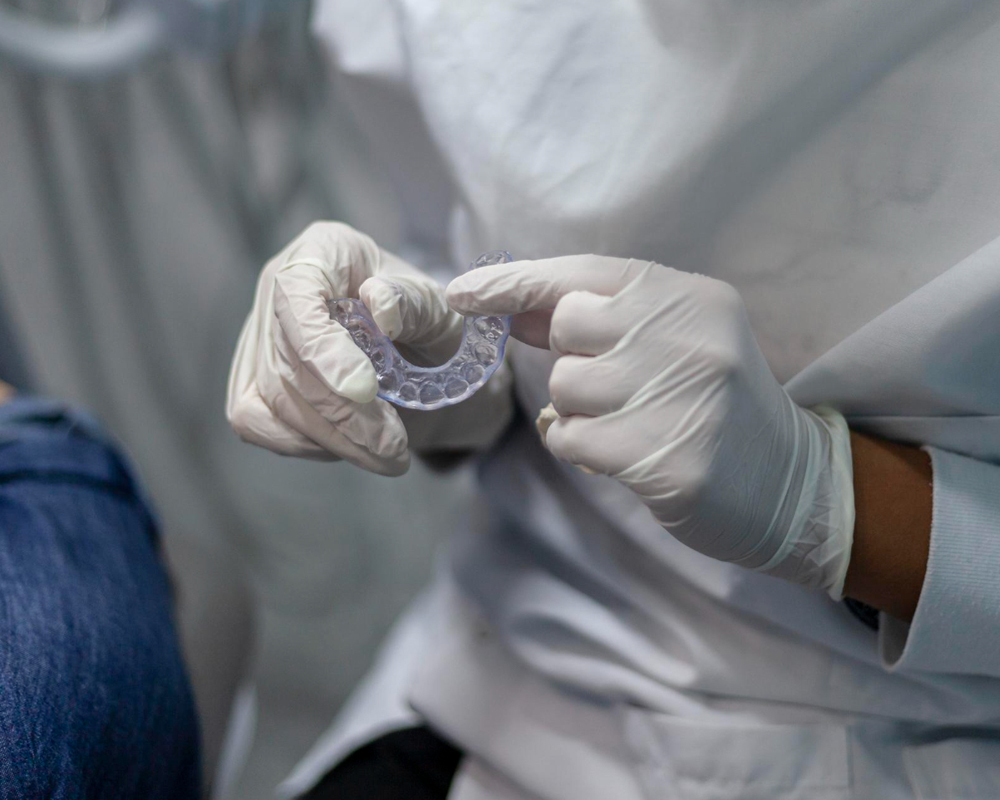Bruxism (Teeth Grinding)
Causes, Consequences, and Solutions
Understanding Bruxism and Preserving Your Dental Health
Bruxism, or teeth grinding, is a common dental issue that can lead to various complications if left untreated. At Care For Smiles, we specialise in diagnosing and managing bruxism to protect your teeth and overall oral health.
Understanding Bruxism
What is Bruxism?
Bruxism refers to the habit of grinding or clenching your teeth, often involuntarily. This condition can occur during the day or, more commonly, during sleep.
- Worn-down tooth surfaces.
- Jaw pain or soreness, especially in the morning.
- Headaches or earaches.
- Increased tooth sensitivity.
- Notching or fractures in the teeth.

Causes and Consequences of Bruxism
Causes:
- Stress and Anxiety: Emotional stress and anxiety are common triggers for bruxism.
- Malocclusion (Misaligned Teeth): Teeth that are not properly aligned can contribute to bruxism.
- Sleep Disorders: Bruxism is often associated with certain sleep disorders.
- Lifestyle Factors: Excessive alcohol consumption, smoking, and caffeine intake may exacerbate bruxism.
- Stress and Anxiety: Emotional stress and anxiety are common triggers for bruxism.
Consequences:
- Tooth Wear and Damage: Bruxism can lead to the gradual wearing down of tooth surfaces and even fractures.
- Jaw Pain and TMJ Disorders: Continuous teeth grinding can contribute to jaw pain and temporomandibular joint (TMJ) disorders.
- Headaches and Facial Pain: Persistent bruxism can cause headaches and discomfort in the face and jaw.
- Tooth Wear and Damage: Bruxism can lead to the gradual wearing down of tooth surfaces and even fractures.
Our Approach to Managing Bruxism

Thorough Examination
Dr. Rishay Naidoo will conduct a comprehensive examination to assess the extent of bruxism and identify contributing factors.

Diagnosis
Accurate diagnosis is crucial. We may recommend a sleep study or other diagnostic tools to understand the nature of bruxism.

Customised Treatment Plan
A personalised treatment plan will be developed to address the specific causes of your bruxism and prevent further damage.

Dental Appliances
Custom-fitted nightguards or splints may be prescribed to protect your teeth from grinding and clenching during sleep.

Lifestyle Modifications
Stress management techniques and lifestyle adjustments may be recommended to address underlying triggers.
Tips for Managing Bruxism


Use a Nightguard
Wearing a custom-fitted nightguard can protect your teeth from the effects of bruxism.

Stress Management
Incorporate stress-reducing activities into your routine, such as exercise or relaxation techniques.

Limit Stimulants
Reduce the consumption of stimulants like caffeine and tobacco, especially close to bedtime.

Regular Dental Check-Ups
Schedule routine dental examinations to monitor the impact of bruxism and adjust treatment as needed.
Schedule Your Appointment
If you suspect bruxism or are experiencing symptoms such as jaw pain or tooth wear, schedule an appointment with Dr. Rishay Naidoo at Care For Smiles. Our expertise in diagnosing and managing bruxism will help preserve your dental health.
Contact us at (03) 9482 1100 or visit our clinic at 254 Darebin Road, Fairfield, Victoria 3078, Australia.
Follow us on Instagram and Facebook for more insights into maintaining a healthy and vibrant smile.